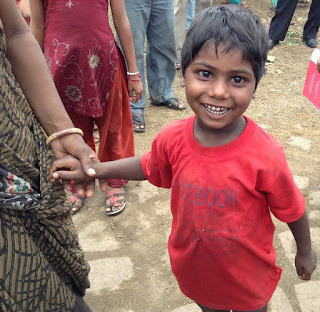


More than a million children under-five die every year in India from largely preventable illnesses. Of the ones who survive, some thirty per cent are malnourished. Many women don’t get good care when pregnant, when they deliver, or after they give birth.
There is improvement, and states like Tamil Nadu, Kerala and Himachal show the way. Others, like Rajasthan and Chhattisgarh, are tackling the problem. But the fact remains: India’s maternal and child record is one of the world’s worst.
Ironically, India’s public health system is well designed, and potentially, has great reach. Every last village and hamlet in India is covered by a health facility. There are three health/childcare workers for every such unit – higher than in most countries. There are visionary, grass roots health programs. Health spending is low, overall—but many states don’t spend all their funds.
Reach, design nor funding is the real problem. It is far more complex. A woman just may not be in position to take care of herself and her baby. She needs to get back to work in the field right after birth. Her father-in-law won’t allow her to travel to the health facility. She doesn’t know of her health needs, or services she is entitled to. She has no voice. She is simply left out.
And yet there is hope. After all, how complicated could providing basic nutrition, breast feeding, or keeping a baby warm be? The pieces of the solutions are mostly known. The crux is this: delivering integrated solutions at scale. That’s when we run into the really complex barriers to scale: livelihoods, physical access, health worker skills, social norms, ignorance, and indifference.
Delivery at scale requires supply, demand and data backed policies working well, and together. That front line health worker needs data at her finger tips. Those women in the small village need to come together to recognise and exercise their collective power and voice. Media and influentials need to nudge the government machinery towards action and change. Solutions need to be sustainable. It has been done – in tackling Polio, DOTS in TB, and Avahan in HIV. There are lessons to be learnt from business.
The Antara Foundation is a non-profit start-up in public health, committed to changing the lives of mothers and children. We focus on scale, working with government. The task is difficult. It needs all kinds of support – from CSR, donors, managers, people with passion, willing to work at the grass roots.
Ashok Alexander is the Founder-Director of The Antara Foundation
Disclaimer: The article has been written in personal capacity, and the views and opinions expressed are those of the author